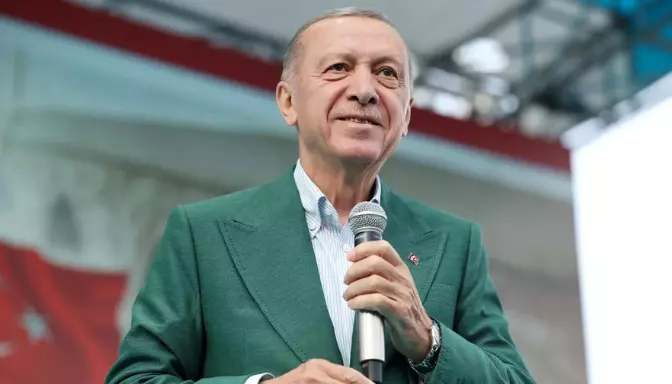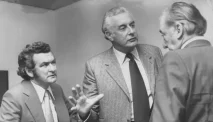Diksia.com - Turkish leader Recep Tayyip Erdogan’s grip on power has defied expectations, as he emerged as the front-runner in the recent presidential and parliamentary voting.
This surprising turn of events comes after the nation grappled with the aftermath of a devastating earthquake earlier this year, which many believed would mark the end of Erdogan’s two-decade rule.
However, his resilient campaign and unexpected support have positioned him for a potential victory in the upcoming run-off election.
As Turkey stands at a critical crossroads, political observers and analysts ponder the implications of Erdogan’s continued dominance and the country’s future under his rule.
The 1999 Izmit Earthquake
A Catalyst for Erdogan’s Ascent: Recep Tayyip Erdogan’s ascent to power can be traced back to the contentious aftermath of the 1999 Izmit earthquake, a seismic event that triggered a series of political shifts in Turkey.
Fast forward to the present day, where another devastating earthquake struck southeast Turkey, raising speculation about the potential end of Erdogan’s rule.
However, against all odds, Erdogan has managed to maintain his position as a formidable candidate.
The First Round of Voting: Erdogan’s Triumph
The first round of Turkey’s presidential and parliamentary voting on May 14 revealed Erdogan as the frontrunner, defying predictions of his downfall.
He secured a nearly five-point lead over his principal rival, opposition leader Kemal Kilicdaroglu, falling just short of the 50% threshold required for victory.
Moreover, Erdogan’s parliamentary bloc achieved a comfortable majority, further bolstering his position.
Unprecedented Endorsement and Rivalry Contrasts
To further strengthen his chances in the run-off election, Erdogan received a public endorsement from the third-place presidential candidate, Sinan Ogan.
This unexpected development deals a blow to Kilicdaroglu’s campaign, increasing the pressure on the opposition leader.
Erdogan, in exclusive interviews, aimed to highlight his accomplishments, downplaying his government’s response to the recent earthquake and dismissing his opponent as a political novice.
The campaigns of the two candidates highlighted their stark differences in style, with Erdogan emphasizing his political acumen and Turkey’s growing defense industry, while Kilicdaroglu presented himself as a technocrat, known for his measured approach and conciliatory demeanor.
Deepening Polarization and Unseen Support
Turkish society continues to experience deepening polarization, with Erdogan enjoying unwavering support rooted in religious fervor.
This support base has remained largely unaffected by the country’s economic challenges and the government’s initial shortcomings in responding to the earthquake.
The significance of this support was not adequately captured by pollsters and Western media, leading to surprises in the first round of voting.
Erdogan’s critics argue that he further bolstered his backing by leveling unfounded allegations against the opposition, accusing Kilicdaroglu of collusion with Kurdish terror groups and questioning his religious dedication.
Regional Divisions and Media Influence
Erdogan’s message resonated strongly in poorer regions of the country, including central areas and the Black Sea coast, where support for Kilicdaroglu was suppressed due to right-wing voters aligning with Erdogan.
Critics argue that Erdogan’s control over Turkish media provided him with an amplification platform, contributing to his campaign’s effectiveness.
However, despite his current advantage, Erdogan’s overall popularity has seen a decline, with his ruling party losing major cities, including Istanbul, in the previous mayoral elections.
The Crucial Run-off Election and Turkey’s Future
As Turkey braces for the run-off election, the nation finds itself at a critical juncture. Erdogan, though positioned for victory, faces scrutiny over his economic policies, rule of law concerns, and threats to social autonomy.
The outcome of this election will not only determine Erdogan’s political legacy but also shape Turkey’s trajectory moving forward.
The question remains whether Erdogan will secure a resounding victory that will solidify his unorthodox approach or if the election will reveal a more nuanced picture, highlighting the challenges faced by the nation.
The final word
Recep Tayyip Erdogan’s ability to defy expectations and maintain his prominence in Turkish politics remains a subject of intense analysis and debate.
Despite the aftermath of a devastating earthquake and growing discontent, Erdogan’s support base, rooted in religious fervor and amplified by media influence, continues to rally behind him.
As Turkey approaches the run-off election, the nation stands at a pivotal moment, where the outcome will not only shape Erdogan’s future but also determine the country’s path.
With Erdogan’s rule hanging in the balance, all eyes are on Turkey as it navigates the complexities of its political and tectonic landscape.






